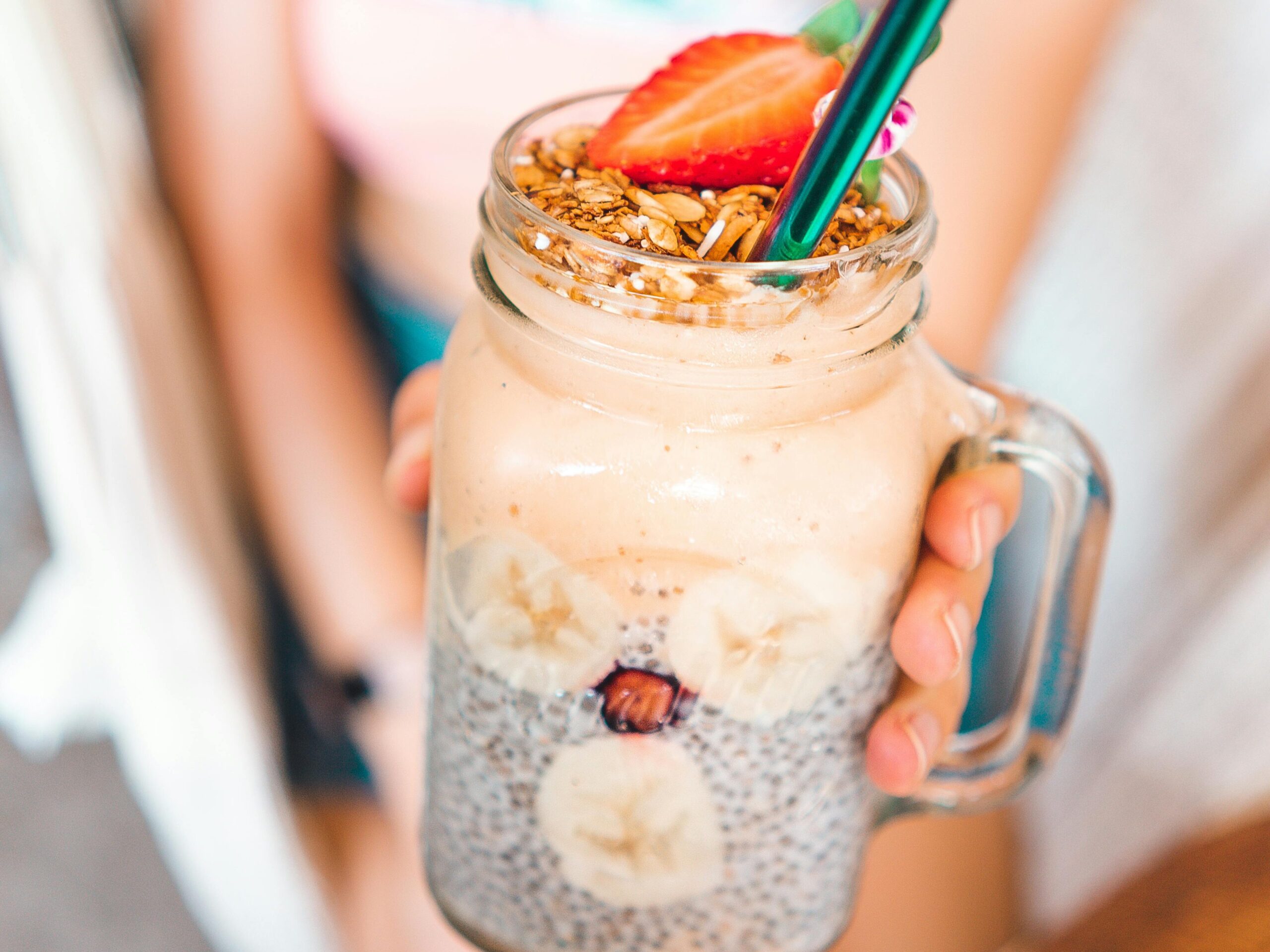How to Increase Your Gut Health – What to Eat & What to Avoid
It’s time to clear up any confusion that may linger about our gut health. Here is exactly how to increase your gut health, including what to eat and what to avoid.

Find out what steps you should take to increase your gut microbiome. This includes nutrition tips, physical workout tips, and what habits you should try to avoid.
What is Your Gut Microbiota
The human microbiome is made up of millions upon billions of microorganisms. They live within our gut and contribute to our well-being. Some of them help us make hormones, vitamins, and other nutrients. Other microorganisms help us digest, regulate the gut barrier, or aid in our metabolism. This is a condensed explanation. For a full explanation of what your gut microbiome is and how it affects you, check out this article here.
How to Support Gut Health
Getting right into it, this is how you can increase your gut health. Find out what nutrients are beneficial for you to eat, why you should eat them, and much more. Plus, find out what habits you can do that also support your gut microbiome that doesn’t have to do with nutrition. Finally, learn what you should avoid eating or doing to help support gut health.
What to Consume
Here is exactly what you should be consuming to increase your gut health. All you need to do is eat these things a couple of times a week, and you’ll be able to feel changes in your gut health after a couple of months. Improving gut health can take time, but it’s worth the effort.
1. Probiotics
Probiotics are foods that contain live cultures of bacteria that can then colonize the gut and improve gut health. This includes things such as fermented foods like kimchi, sauerkraut, Greek yogurt, and milk kefir.
2. Prebiotics
Prebiotics, on the other hand, are foods that feed gut bacteria. They include things that are high in indigestible fiber such as resistant starch. Foods high in resistant starch include beans, lentils, peas, potatoes, and green plantains. Other examples of prebiotic foods include the fiber found in barley, oats, wheat bran, bananas, apples, avocados, and cocoa.
3. Hydrate Well
Hydration is important. Even slight dehydration can pose huge problems for us as shown in this article here. However, when it comes to gut health, hydration plays a key in increasing the diversity of the microorganisms in our guts. Stay hydrated to keep your gut healthy and well-balanced.

Habits to Have
Here are some important habits that you should start doing daily to increase your gut health. Sometimes, health is about more than just nutrition.
1. Daily Exercise
Exercising daily has been linked to good microbiome health. This is because exercise can improve your metabolic profile and increase the diversity of your gut microbiome.
2. Stress Management
Too much stress is linked to inflammation and a decrease in gut microbiome diversity. That’s why it’s important to develop some good stress management habits such as meditating, breathing exercises, or yoga.
3. Sleeping Well
Insufficient sleep is a big reason your overall health deteriorates. A lot of important processes happen while we sleep including repair and recovery. Not getting enough sleep can negatively impact your gut health which in turn can lead to more sleep issues such as insomnia. Try to get at least 7 to 8 hours of sleep per night. For a full guide on how to sleep well check out this article here.
What to Avoid
Oh, you’re a couple of things that you need to avoid to increase your gut health. This includes certain activities and nutrients that harm your microbiome.
1. Alcohol
Alcohol is one of the worst things you can do for your gut health. This is because alcohol tends to cause bacterial imbalance and inflammation which will disturb your gut microbiome. Plus, alcohol may harm the population of gut microorganisms already in the intestines.
2. Ultra-Processed Foods
You’re going to want to avoid ultra-processed foods if you want to improve your gut health. Ultra-processed foods are nutrients that have been changed with additives, colors, chemicals, and preservatives. Ultra-processed foods are highly linked to inflammation and are high in sugar, salt, trans fat, and food additives, all of which alter the diversity of your gut microbiome in a negative way.
3. Antibiotics
Now, listen to your doctor if you’ve been prescribed antibiotics, but know that antibiotics Target both harmful and beneficial bacteria in the body. Don’t take antibiotics you have not been prescribed. If you are prescribed antibiotics, take them as directed, and then do things and eat nutrients to help restore balance to your gut microbiota.
Signs of Gut Imbalances
Real quick, we need to know the signs of an imbalanced gut. Knowing what issues to look out for can help us make quick changes to benefit our microbiome.
Some common signs that you may notice at first have to do with digestion. This can be bloating, heartburn, stomach aches, or nausea. Some secondary issues may relate to our energy levels. This is because the job of some of our microorganisms is to help us convert food and nutrients into energy. You may start to feel sluggish and even experience drowsiness as soon as you wake up or have trouble sleeping at night. If you’re working out, you may notice that you have plateaued and cannot build muscle at the same rate.
Another issue that can occur is mental. About 90% of serotonin and 50% of dopamine are created in the gut. These are happiness chemicals that contribute to our mood and mental wellness.
The Takeaway
It cannot be overstated how much the gut microbiome contributes to our wellness. It is related to so many biological processes, from our metabolism to our immune system to our mental health. That is why it is important to learn how to increase our gut health by knowing what we should eat and what we should do. It is also important to know what we shouldn’t eat and what we should avoid.
Remember that health comes from within. Eat nutritious food, exercise when you can, and take care of your mental health. The small daily habits you cultivate become the basis for overall wellness. Get all the resources you need about microbiota health for free here!





